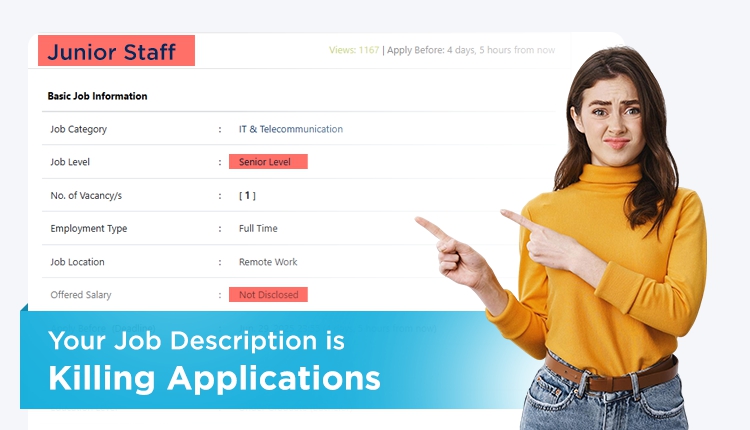Everyone has their share of rough days at work and everyone lacks the determination to go to work every now and again. But are you one to feel downright suffocated at your job? Are you continuously stressed and have work blues every morning? Do you constantly feel that your job is not what you signed up for, and often consider handing in that notice letter?
So how do you know when it’s really time to quit your job? For some people, it may be quite clear, while for some it may not be so obvious.
Let’s find out if it’s time for you to move on:
- You lack enthusiasm: The most evident sign that you need a change is when you are no longer passionate about your work. You are bored most of the time and regularly keep checking your watch in the hope that time speeds up, so you can finally get out of your office. How you feel about the work you do daily is the clearest sign of whether you should quit.
- Depressed mornings: You feel unhappy and anxious when you wake up to go to work. To simply put it, you are frightened to go to work. You might be feeling so because of the monotonous nature of your work or because you can’t stand your boss and colleagues. In such situations, you should first try to work out the issue by confronting your boss and colleagues about their behaviors, or the nature of your work. If you can’t seem to find any improvement even after that, it’s best to quit
- Your work is affecting your health: Work stress and an unhealthy work environment can cause a negative impact on your health. If any work-related problems harm you mentally or physically, it is a clear sign to start considering other options. Remember that health should always be your topmost priority. Never degrade your health for your work.
- No productivity: You might want to start looking for other job options if you are performing exceedingly below your productivity levels. Even though you are capable of performing your tasks, you might find yourself just not able to do so. In such a case you might want to join another workplace that brings out the best in you. However, be careful to make sure that your work potential is being affected because of the workplace and not because you are procrastinating more than you are actually working.
- No scope of improvement: If you do not see any scope for growth and you are just stagnating in the same job without any opportunity for improvement, it may be time for you to leave your job. It is better you look elsewhere rather than wasting your time and energy. In such a situation, you should first secure a better opportunity before you just spontaneously quit.
- You are an invisible person: You have what it takes to get the job done and you have been proving yourself by doing so, but your management still does not recognize and appreciate your contribution. Apart from that, if you know you have potential to offer a lot more but your ideas are not being heard, or are being undervalued, you might want to consider finding a new job. Such factors could bring down your morale and you might start doubting your own capability. The best way to go about such a situation is to first voice your concerns to your managers and HR. If there is no improvement its best to leave.
Lastly if you are reading this article, you should take some time out and ponder about your work troubles. The fact that you searched for this topic is a signal for you to move on.
However, do not forget that quitting is not the only option and there are things you should consider before quitting your job.
















